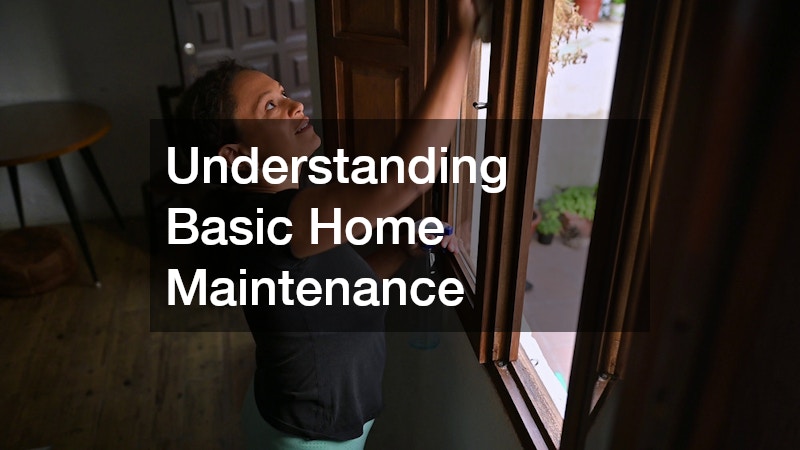Welcome to our comprehensive guide on handling any home repair like a pro. Whether you’re a seasoned DIY enthusiast or new to the world of home maintenance, these expert tips will make any home repair task manageable and successful. From managing simple fixes to knowing when to call in a professional, this article will equip you with the knowledge needed to approach any house repair confidently, ensuring each task is completed efficiently and effectively in keeping with home safety standards. Understanding basic maintenance procedures, leveraging expert insight, and employing the right strategies could significantly transform your living space without the excessive expenditure of hiring a professional.
Understanding Basic Home Maintenance

Home maintenance is an essential aspect of homeownership that involves regular checks and minor home renovations to avoid significant repairs later. Simple tasks such as checking the roofing and ensuring your AC is working efficiently can prevent expensive future repairs. Basic knowledge of home systems helps homeowners recognize problems early, allowing for swift interventions and maintaining the home’s value. Investing time in learning about home maintenance can save both money and stress. Attending local workshops or watching online tutorials on tasks such as lawn irrigation or minor renovations can endow you with essential skills. These proactive measures can prevent having to call a handyman service for tasks you can confidently accomplish with your own hands.
Consistency is key in home maintenance, as periodic assessment ensures a prolonged lifespan of home elements. A routine check, like testing faucets to avoid calling plumbers or examining cabinets for repairs, contributes to the overall upkeep. Up-to-date maintenance of your home not only ensures safety but also improves the living experience for everyone under the roof. Adding a few structured habits to your routine can further strengthen your home maintenance efforts. For example, creating a seasonal checklist helps homeowners stay organized throughout the year. During summer, tasks might include clearing gutters, checking irrigation lines, and inspecting outdoor lighting. In winter, it may involve sealing drafts, examining the furnace, or monitoring the plumbing for potential freezing concerns. These small, timely actions can make a significant difference in preventing larger issues.
Additionally, homeowners benefit from keeping basic tools on hand, such as a screwdriver set, caulk, pliers, and a flashlight. Having the right tools available makes it easier to address small repairs immediately rather than postponing them. Even something as simple as tightening loose hinges or replacing worn weatherstripping can have a noticeable effect on comfort and efficiency. Over time, developing a familiarity with how your home functions—from electrical systems to ventilation—boosts your confidence and prepares you to identify when professional help is truly necessary. Being proactive not only protects your investment but also creates a safe, comfortable environment for years to come.
How to Create a Home Repair Plan
A good home repair plan begins by assessing the current state of your home. A roofing company inspection can provide insights and help pinpoint potential problems before they become serious issues. Listing down necessary repairs and renovations will help prioritize tasks according to urgency and importance. Another vital aspect of the plan is setting a realistic timeline. Whether the task involves AC repair or fixing lawn irrigation systems, allocating adequate time for each project helps in sticking to the schedule. A well-crafted plan improves efficiency, keeping you from being overwhelmed by multiple tasks.
Budget allocation is crucial in any home repair plan. Estimating costs by contacting service providers, such as a handyman service or obtaining quotes from a cabinet company, helps in effective financial management. Budgeting helps in preventing unnecessary financial strain, keeping projects within affordable limits. In addition to budgeting, homeowners should also consider building a small emergency fund specifically for home repairs. Unexpected issues such as a leaking faucet, electrical malfunction, or sudden appliance breakdown can occur without warning. Having funds set aside ensures that these surprises don’t disrupt planned projects or force you to postpone essential fixes. Even a small monthly contribution can accumulate over time, offering peace of mind when the unexpected happens.
Research also plays a significant role in creating a successful home repair plan. Spending time comparing materials, researching trusted local service providers, and reading customer reviews can help you make informed decisions. For larger projects, such as renovating a kitchen or upgrading a bathroom, gathering multiple quotes allows you to balance quality and cost effectively. Finally, communication is an often-overlooked but important part of the process. Coordinating with contractors, discussing expectations clearly, and confirming timeframes can help prevent delays and misunderstandings. Staying actively involved keeps your plan on track and helps guarantee that each part of your home gets the care it needs.
When to DIY and When to Call a Professional
Knowing the limits of your DIY skills is essential in deciding when to tackle a project or call a professional. For instance, simple tasks like cleaning a carpet can be handled in-house, unlike technical tasks requiring a professional plumber. Acknowledging when a task is beyond your expertise can prevent exacerbating problems, saving costs, and ensuring safety.
Projects demanding precision and complex tools, such as those managed by a roofing company or involving AC repair, require expert intervention. Variables like safety issues and technical expertise often necessitate professional involvement to avoid costly mistakes. Striking a balance between DIY and professional help optimizes repair outcomes while managing time and resources efficiently.
Your safety should always be a top priority; handle simple tasks such as pressure washing or minor lawn irrigation yourself, but when issues like electrical faults arise, calling an expert is advisable. Remember, the goal is to complete home repair projects successfully, ensuring safety while maintaining budget constraints.
Gathering the Right Tools and Materials

Equipping your toolkit with the right tools and materials is crucial for any repair project. Items such as hammers, screwdrivers, a tape measure, and a quality pressure washer are often needed. Ensuring the availability of necessary tools cuts down repair time, optimizing efficiency regardless of whether the task involves handyman services or minor projects.
Consider the job at hand before assembling your tools. For projects like installing lawn irrigation, accessing specific tools for piping or water management cases becomes necessary. Preparing materials ahead of time helps in tackling the task without unnecessary distractions or wastage of effort.
Understanding which materials are best for each repair can influence the durability and quality of work. For example, selecting high-quality materials from a reputable cabinet company can enhance the longevity of your furniture. Adequate knowledge and preparation allow you to create professional-quality results at home effortlessly.
Safety Tips for Home Repair Projects
When embarking on any home repair project, safety should remain a primary concern. Using personal protective gear like safety glasses and gloves reduces the risk of injury. Tasks involving professionals like plumbers or a roofing company should be prioritized based on safety considerations, ensuring complex issues are dealt with safely.
A thorough understanding of power tool operation is essential to avoid accidents that damage both the user and the home. Tools such as a pressure washer and drills demand knowledgeable handling to perform efficiently and safely. Following the manufacturer’s instructions and guidelines while using these tools helps prevent unforeseen hazards.
Maintaining safety extends beyond personal protective equipment; ensuring a neat and orderly workspace is equally vital. Removing clutter eliminates potential hazards, facilitating organized repair work and preventing unintentional damage or injury. Establishing a safety-first mindset is integral in managing successful and risk-free home repairs.
Understanding Warranties and Insurance
Understanding warranties and insurance takes on significant importance when tackling home repairs. Being aware of warranty terms could determine whether the repair falls under handyman service obligations or requires your attention. Thorough knowledge of coverage ensures informed decisions, minimizing repair-associated costs.
Homeowners must assess their home’s insurance policy periodically to align it with current requirements. Having an adequately covered policy facilitates repairs like roofing or AC repair without financial burdens. Establishing clear communication with insurance service providers ensures swift claim processes when needed.
Proper documentation of all repairs, materials purchased, and services used is beneficial in warranty and insurance negotiations. Consistent record-keeping helps validate claims when unexpected breakdowns, such as requiring a carpet cleaner, surface. Comprehension of these terms protects homeowners and promotes smoother repair solutions.
How to Find Reliable Contractors

Part of being proficient at home maintenance is collaborating with dependable contractors. Researching contractors through reviews and recommendations provides insight into service quality and reliability. When in need of a plumber or carpet cleaner, checking the past client satisfaction levels assists in decision-making.
Ensure you select a contractor with appropriate certifications and insurance. This verification helps in establishing reliability while protecting against potential liabilities. Services like those offered by a reputable cabinet company or a portable restroom provider should demonstrate professionalism and regulatory compliance.
Choosing the right contractor involves open communication, where project expectations, timelines, and budget constraints are addressed. Clear discussions help prevent misunderstandings, ensuring contractors deliver what is anticipated. Establishing strong partnerships with reliable contractors aids in successful home repair endeavors.
Managing Repair Timelines and Expectations
Effective management of repair timelines is dependent on accurate project assessments. Understanding the scope of work, whether it’s a simple repair or a comprehensive renovation project, influences scheduling. Clear initial evaluations assist in setting realistic expectations, even when involving a roofing company or plumbers.
Adjustments may occur as unforeseen issues arise; staying flexible aids in managing such changes. Reinforcing a clear communication channel with contractors or service providers, like those handling portable restrooms, ensures faster resolution to unexpected alterations. Navigating these changes effectively enhances the repair’s end quality.
Ultimately, when timelines and expectations align, the result is optimum project satisfaction. Regardless of whether tasks involve home renovation or AC repairs, successful timeline management supports the realization of repair objectives within budgetary and time constraints. Establishing these clear plans makes future endeavors smoother and more efficient.
Staying on Budget: Cost-effective Repair Strategies
Effective budget management is key to executing successful home repair projects. Understanding the scope and expected costs involved in projects allows homeowners to create realistic financial strategies. Engaging in thorough market research, whether involving contractors or materials, optimizes resource allocation, as evidenced by engaging a cabinet company.
Negotiating with service providers can secure discounts and curb costs without compromising project quality. Whether receiving quotes from a roofing company or negotiating a pricing agreement with a handyman service, leveraging competitive rates offers financial benefits. Utilizing these strategies ensures adherence to the set budget while achieving desired repair outcomes.
Repurposing materials or opting for budget-friendly options helps in replacing items without unnecessary expenses. Salvaging usable materials from past renovations or purchasing discounted items directly impacts the project’s affordability. These approaches ensure high-quality work remains cost-effective without sacrificing structural integrity or aesthetics.
Documenting Repairs for Future Reference

Keeping a detailed record of repairs is beneficial for future comprehension and transparency. Maintaining logs of work uses, contractor details, and costs incurred provides a valuable reference, especially when dealing with warranty or insurance claims. Whether involving a plumber’s service or the installation of a lawn irrigation system, documentation remains a useful resource.
Photographs and video footage of repairs offer visual evidence, supporting documentation immensely. These visual records are handy for comprehending complexities, particularly with intricate repairs like those conducted by pressure washer professionals. Regular updates ensure that both minor and major repairs are documented for future reference.
Proper storage of repair records, preferably digitally, promotes easy access when needed. Organized documentation assists in deciphering any possible future concerns or faults with ease, offering an informed perspective. This habit reduces uncertainties and enhances readiness for any future repairs or insurance claims.
Utilizing These Professional Tips
Armed with these professional tips, you are now ready to tackle any home repair with confidence. Remember, planning, safety, and knowing when to seek professional help are key to successful home maintenance and repair tasks. By combining strategic planning, ensuring safety standards, and effectively utilizing available resources, you are empowered to handle your home repairs efficiently. Regular upkeep and a proactive approach to maintenance guarantee the longevity and safety of your home environment. With the essential knowledge acquired through this comprehensive guide, you stand poised to handle any repair like a seasoned pro, ensuring every project is managed with expertise and precision.
